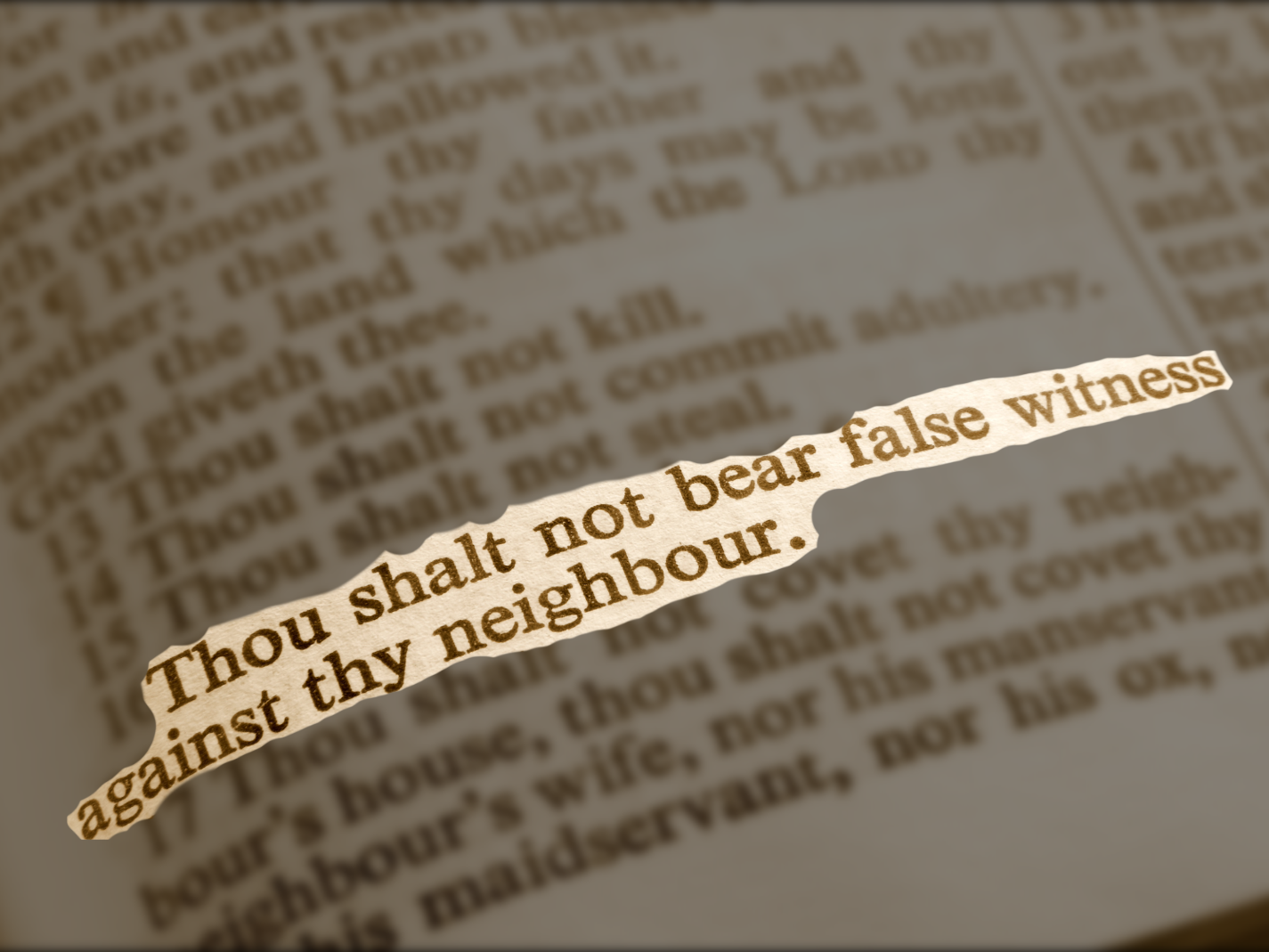
Research misconduct scandal after research misconduct scandal has surfaced in the science world as of late. Between neuroscientist and National Institute of Health (NIH) officer Eliezer Masliah, who Minding the Campus contributor David Randall reported on in late September, and superconductivity physicist Ranga Dias, whom I reported on, news of scientific misconduct has become increasingly prominent. And it is incredibly concerning.
Both these cases highlight two major points of failure in scientific academia. The first stems from the peer-review process, which is a process in academic research publication aimed at assessing the “originality, validity, and significance” of research manuscripts to determine their eligibility for publication in a particular journal[1].
Considering that there was not one, but several papers retracted in both misconduct cases, one must wonder about the proficiency of the reviewers in the peer-review process. One would think that competent peer-reviewers would have trained eyes to spot instances of data and figure manipulation before it was even published. Yet somehow this was overlooked when involving both Masliah and Dias.
[RELATED: Ranga Dias Deals Another Blow to Scientific Integrity]
The second point of failure points directly back to the universities themselves.
As I noted in my report of the Ranga Dias case, he was found to have not only manipulated and plagiarized his publications but also around a quarter of his Washington State University Ph.D. thesis, which included identical paragraphs from a 2007 thesis by James Hamilin. The first question that comes to mind is how his dissertation committee missed such blatant evidence of plagiarism. If Dias’ cheating behaviors had been exposed before he even graduated, any damage done in the greater scientific community could have been avoided.
Fraudulent publications such as those by Masliah and Dias not only affect the reputations of the coauthors and the public’s trust, but they also have a domino effect on all other publications based on their research. Now, there is a serious concern that every work based on these fraudulent publications is riddled with error.
I just recently wrapped up a Master’s class entitled Faith and Science, where one of our mid-semester assignments was an in-class debate aimed at arguing for or against the reciprocal relationship between Christianity and scientific practice. Within our conversation, a serious point was brought up and debated between the “for” and “against” groups: biomedical ethics. The “against” group argued that Christianity places too many limitations on scientific practice that prevent science from “spreading its research wings.” Conversely, the “for” group’s response noted that without the moral restrictions that Christianity places on science, human immorality would run science into the ground.
This is an incredibly important point to consider within current scientific practice.
Ultimately, research misconduct stems from a failure of morality and ethics. It is the point at which selfishly motivated scientists choose personal gain and prestige over the well-being of the community and the world. However, I argue, that although personal responsibility is a critical factor in this conversation, those who have been involved in the professional life of said scientist are also partially responsible.
The professors and mentors involved in the lives of science students—and, quite frankly, all students—are not simply responsible for catching, disciplining, and reporting lazy and cheating behaviors. This is the bare minimum. The best professors I ever had surpassed discipline to instill morality and a conscientious work ethic. Yes, they set high expectations for students. But they also went above and beyond to act as excellent role models, demonstrating moral character and a high ethical standard wherever they went.
Ethics needs to return to the science world, but the process needs to start from the ground up.
[RELATED: New Christian Medical School at Brigham Young University]
Everyone bears some form of responsibility in this process, ranging from students to professors to mentors. And Christian higher education might just be the antidote for the research misconduct poison.
Proverbs 12:22 states, “The Lord detests lying lips, but he delights in people who are trustworthy.” In Christian schools, cheating, plagiarizing, and fabricating are more serious offenses than simply breaking school rules. It is a strict moral standard, and as an offense to the Lord and to the Christian faith, it is considered both shameful and embarrassing behavior.
Yes, the occasional cheating student may slip by undetected, but this is incredibly rare in small Christian schools, where there is a small class size, a high level of accountability, and professors with a strict moral standard. Ultimately, Christian schools have the perfect opportunity to turn out ethically conscious and honest scientists who can change the landscape of the science world to once again become more trustworthy.
Explore more from Hannah Hutchins on Muck Rack, and visit our Minding the Science column for in-depth analysis on topics ranging from wokeism in STEM, scientific ethics, and research funding to climate science, scientific organizations, and much more.
[1] “Peer review process,” BioMed Central, https://www.biomedcentral.com/getpublished/peer-review-process#:~:text=Peer%20review%20is%20the%20system,authors’%20response%20to%20the%20reviewer.
Image edited by Jared Gould using asset by Sharpshot on Adobe Stock: Asset ID#: 3474903

Writers are not responsible for their headlines, but this headline is particularly awful: “Christian Ethics Are the Anecdote for Research Misconduct”
The antidote for research misconduct is scientific ethics, not Christian ethics. There’s no necessary conflict between the two, but there’s also nothing against plagiarism in the Bible.
“there’s also nothing against plagiarism in the Bible.”
I disagree — “thou shalt not steal” is one of the Ten Commandments.
Intellectual property is property, plagiarism is theft thereof.
I look at this quite simply: Thou Shalt Not Steal….
Thou particularly ought not steal from the Federal government as there is a Federal False Claims Act with some serious consequences — and as Federal money is somehow involved in almost all research, it’s time for people to start bringing False Claims Act prosecutions. And note that it was the NSF who asked U-Rochester to investigate Ranga Dias — we may not have heard the end of this yet, and remember that Trump will appoint the director and deputy director of the NSF…
“As I noted in my report of the Ranga Dias case, he was found to have not only manipulated and plagiarized his publications but also around a quarter of his Washington State University Ph.D. thesis, which included identical paragraphs from a 2007 thesis…. If Dias’ cheating behaviors had been exposed before he even graduated, any damage done in the greater scientific community could have been avoided.” [emphasis added]
I need to raise three points here.
First, how do you steal what you already own? Plagiarism is theft — you are stealing someone else’s research or writing. Not your own, and I argue it is rather pretentious to cite yourself. If it is a multi author paper it should be cited to give the other authors credit, but if it’s just your work, you are going to get credit either way so what’s the difference?
So he lifted paragraphs out of his 2007 thesis? It’s his work, it’s truth that he wishes to profess, and (assuming that it is of dissertation quality) does it really matter when he authored it? And in some programs with a Masters/Doctorate track, your thesis becomes the first chapter of your dissertation — verbatim, although you are allowed to edit it. Absent a clear reason why, I’d actually be more concerned if he wasn’t consistent with what he had written in 2007*, particularly if the dissertation involved the same subject.
I ran into this in my MEd program when I realized that the same research was relevant to papers that I was concurrently writing for two different classes. So I emailed both professors, they emailed their colleagues and the consensus was a broad “you don’t cite yourself.” It’s possible that Diaz’s committee told him the same thing, I’d want to know otherwise…
Second, even if one should quote ones self, how on earth does one remember everything that one has ever written? Writing style is like a fingerprint, you are going to use pretty much the same words in the same combination and that’s close enough to count as plagiarism if someone else had written it. But you did — it’s your work.
The legal concept is Mens Rea — did the person knowingly commit the crime. I like to think that a Christian university would use the same standard — did the person knowingly use the same words that he/she/it used decades ago for something that a reasonable person would have forgotten ever having written.
Third, even if one doesn’t agree on self plagiarism (and it may vary between fields) there is a BIG difference between that and fabricating data. That’s outright lying, theft if you have funding, and a Federal False Claim if your funding is somehow Federal dollars. And as Ms. Hutchins points out, quite serious when others build upon your purported scholarship.
The other wild card here is that Diaz is from Sri Lanka — he is a “person of color” and one has to wonder how much of a pass he got over the years because of that. Just wondering, and that is one of the untold costs of DEI.
I conclude by coming back to where I started — Thou Shalt Not Steal. Fabricating research is stealing the money that paid for the research, plagiarizing the works of others is stealing their work, but plagiarizing yourself — I don’t think so…
________
* An example are those who were warning about “Global Cooling” in 1987, “Global Warming” in 2007, and “Climate Change and More Severe Storms” today. Well, were you wrong then, or are you wrong now?
Hello Dr. Ed,
Thank you for your commentary. I did want to note that the plagiarism I was referring to was indeed of someone else’s work—more precisely James Hamlin who is a professor at the University of Florida. I note this in my full Dias report, which I published November 18. Please see below:
https://www.mindingthecampus.org/2024/11/18/ranga-dias-deals-another-blow-to-scientific-integrity/
I apologize for the ambiguous and potentially misleading phrasing. Highlighting this finding was very much intended to show that he committed true plagiarism of at least 25% of his work and not self-plagiarism.
The article has been updated. Thank you for noting this oversight.
My bad — there are so many of these people that I’m having trouble keeping them all straight. And I trust you are aware of the sexual harassment scandal at the same University of Rochester — seven years ago in their Department of Brain and Cognitive Sciences.
I’ve also seen references to Diaz having raised something like $17 Million in outside funding to use his nonexistent superconductor discoveries, and that’s the sort of thing that both the NY AG and US DOJ can and do prosecute. And it probably is easier to prosecute something like that.
But he had a NIH grant and I’d love to see Trump’s Justice Dept go after him for fraud. He accepted NIH money with the promise that he would conduct research in a certain manner, i. e. “accepted standards and practices” and he didn’t. That’s also fraud.
We need a Varsity Blues Part Deux — a dozen professors winding up in Federal Prison to put an end to this.
Dr. Ed, it’s been updated to say “but also around a quarter of his Washington State University Ph.D. thesis, which included identical paragraphs from a 2007 thesis by James Hamilin”